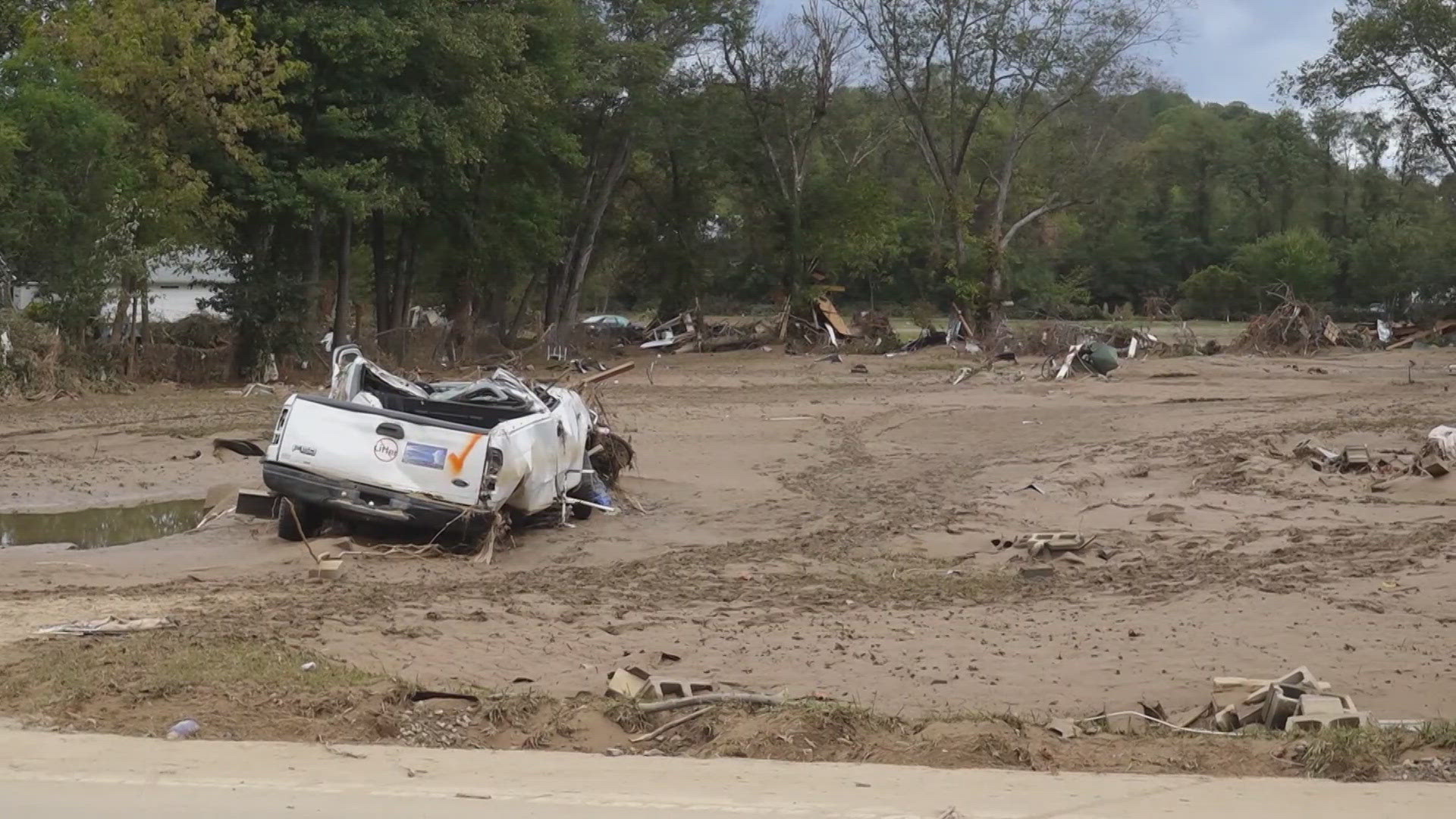SWANNANOA, N.C. — Many communities in Western North Carolina were devastated by Hurricane Helene. But one community in particular was hit especially hard: Swannanoa. A small community of just over 5,000 people between Asheville and Black Mountain.
For resident and expecting mother Emily Russell, it's a new reality for her after Helene tore apart the home she's lived in her entire life, while she was inside.
"It's almost like you're watching a movie," Emily Russell said. "When I seen the water coming up and it kicked in my front door and then our back door at the same time. And within 30 seconds, it went from starting to come to up to my neck."
She said she was stuck inside for over 12 hours, sitting in a mixture of water and gasoline.
"Do I jump out the window and try to float on something so that I'm not about to die and drown and smell gas? Or do I just sit in the bedroom and wait for help? And being pregnant, I didn't want something to hit me, so I just sat waiting for help," she said.
Seeing her home destroyed by flooding was something Russell didn't expect, especially with a baby on the way.
"It's hard," Russell said. "It's hard because, I mean, you know, I grew up here, [my daughter's] grown up here. I was about to raise him here, and, you know, we just put the new roof on. We were doing so many remodels, and it's just it's sad to just see it go."
Danny Bailey has lived next door since 1968. When the rain started, he was able to evacuate.
"I got a truck wrapped around the tree there, my tractor and Corvette underneath the trailer over there and the Mustang over there in the field," Bailey said.
Now, Bailey's lost everything except the four dogs he brought with him and one of his cats, who he found stuck up a tree.
For Fred Forester, he has lived in Swannanoa for 24 years. In 2004, his community witnessed hurricanes Francis and Ivan but the damage was not as severe.
"The water didn't come this far, and most of this, what's hit our house, happened in about three hours, so the water's at least a foot inside our house," Forester recalled. "But we're not hit nearly as bad as people just five 600 yards away from us who lost everything. It's really hard to see other people that are way worse off than we are."
He said there's a lot of work to be done. And while he is thankful, he feels for the people who have lost everything.
"That all cuts pretty deep," he said. "So we help people where we can."
He's spent days digging the river silt out of his home.
"It's six to eight inches deep everywhere around," he said. "We have already emptied two rooms. We've got three bedrooms yet to empty out and rip carpet out."
It's hard work made harder without running water, power or cell service.
"How do you clean your hands? There's no showers," Forester said. "You know, we're rationing, we can't get water out of the creek to flush toilets. So it's, it's stuff that you never think about that now is, you know, a bite of a sandwich here, bottled water there, and you just… one step at a time."
But Forester said he is just glad he has a home still standing.

